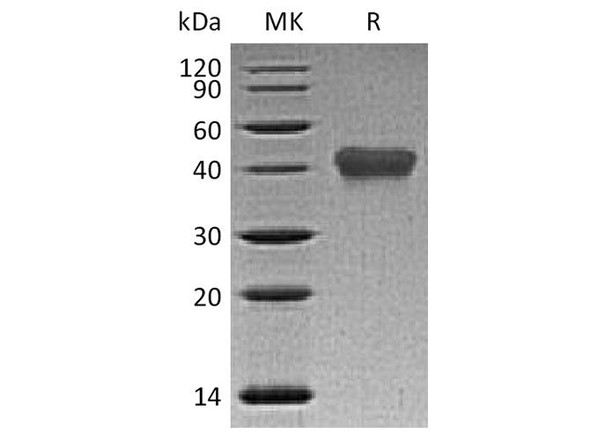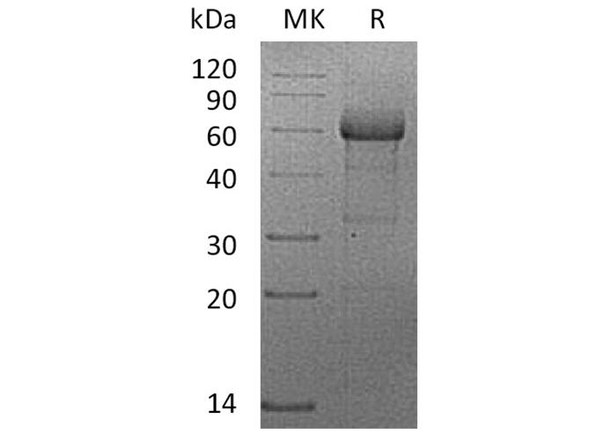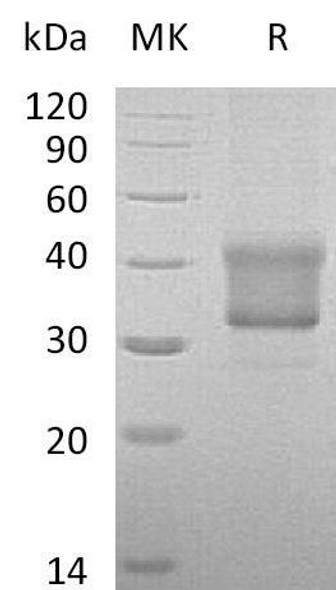| Sequence: | Met1-Asn257 |
| Accession: | P20333 |
| Storage: | Generally, lyophilized proteins are stable for up to 12 months when stored at -20 to -80°C. Reconstituted protein solution can be stored at 4-8°C for 2-7 days. Aliquots of reconstituted samples are stable at < -20°C for 3 months. |
| Shipping: | This product is provided as lyophilized powder which is shipped with ice packs. |
| Formulation: | Lyophilized from sterile PBS, pH 7.4. Normally 5 % - 8 % trehalose, mannitol and 0.01% Tween80 are added as protectants before lyophilization. Please refer to the specific buffer information in the printed manual. |
| Reconstitution: | Please refer to the printed manual for detailed information. |
| Background: | Tumor necrosis factor receptor superfamily, member 1B (TNFRSF1B), also known as Tumor necrosis factor receptor 2 (TNFR2) or CD120b antigen, is a member of the tumor necrosis factor receptor superfamily. TNFR2/CD120b/TNFRSF1B is a member of the TNF-receptor superfamily. This protein and TNF-receptor 1 form a heterocomplex that mediates the recruitment of two anti-apoptotic proteins, c-IAP1 and c-IAP2, which possess E3 ubiquitin ligase activity. Knockout studies in mice also suggest a role of this protein in protecting neurons from apoptosis by stimulating antioxidative pathways. TNFR2/CD120b/TNFRSF1B is not a major contributing factor to the genetic risk of type 2 diabetes, its associated peripheral neuropathy and hypertension and related metabolic traits in North Indians. Tumor necrosis factor receptor superfamily, member 1B (TNFRSF1B) has been reported to be associated with SLE risk in Japanese populations. TNFR2/CD120b/TNFRSF1B serves as a receptor with high affinity for TNFSF2 and approximately 5-fold lower affinity for homotrimeric TNFSF1. This receptor mediates most of the metabolic effects of TNF-alpha. Isoform 2 blocks TNF-alpha-induced apoptosis, which suggests that it regulates TNF-alpha function by antagonizing its biological activity. |






